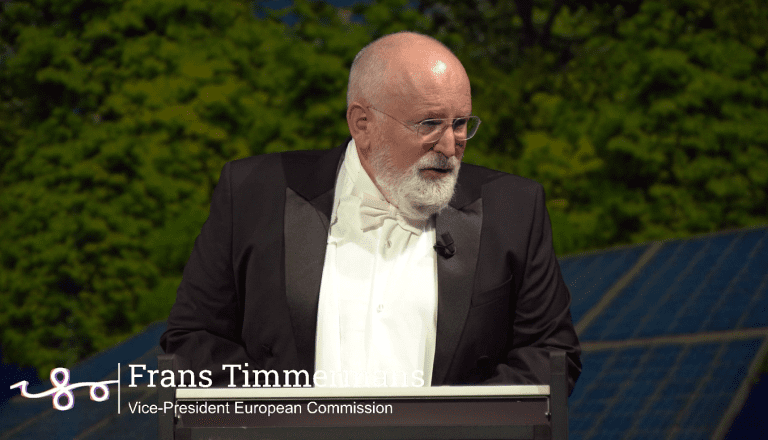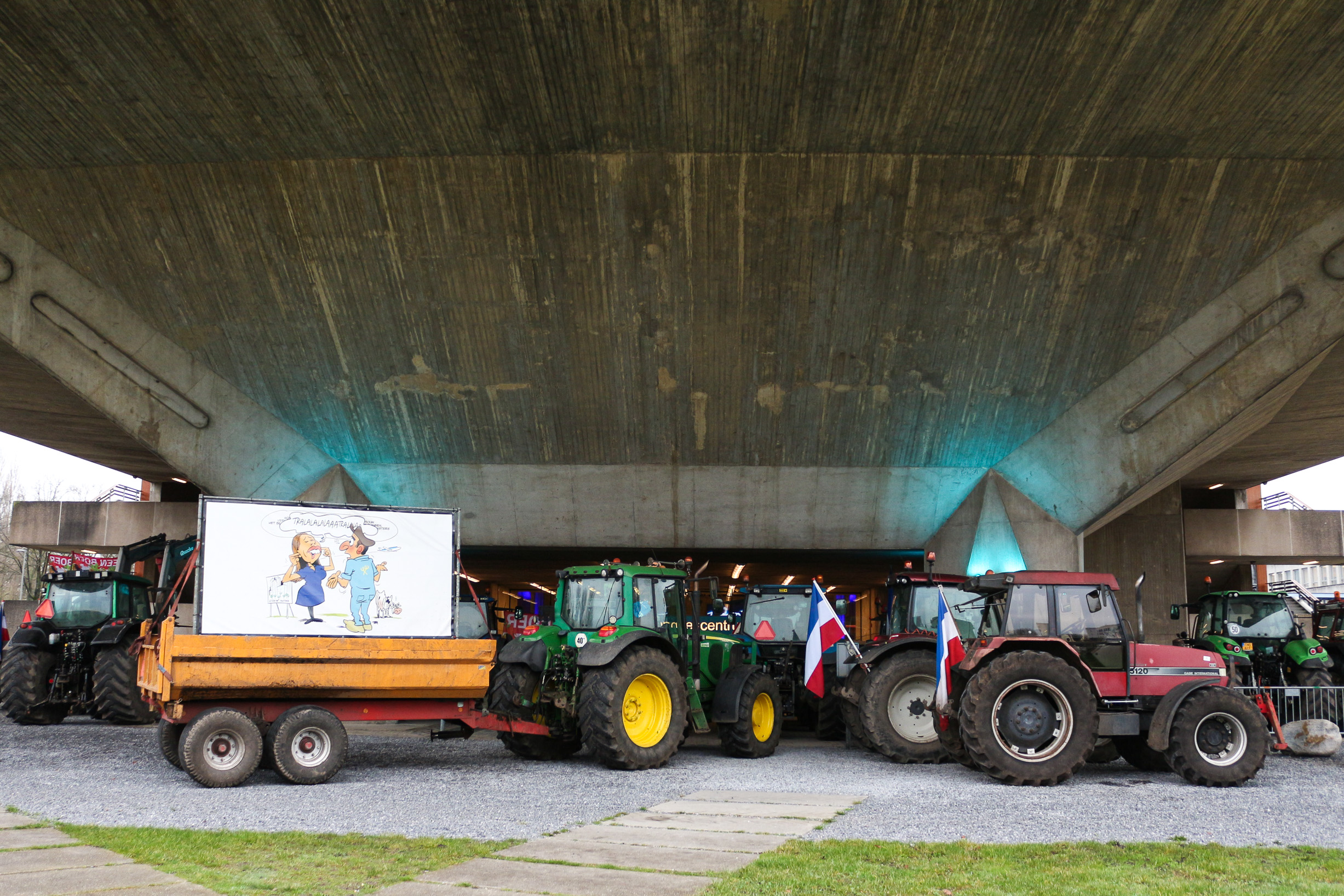TU Delft’s 180th Dies Natalis anniversary is dedicated to the energy transition. The honorary doctorate for Frans Timmermans was not well received because of his Green Deal.
Farmers protest in front of the Aula. (Photo: Justyna Botor)
Rector Magnificus and Executive Board Chair Tim van der Hagen hosted the celebration that, given the current corona restrictions, was held online for the second year.
The energy transition is a crucial factor in the battle against climate change. With thousands of energy scientists, TU Delft is keen to deploy its knowledge and expertise to speeding up the energy transition and making it successful. ‘Speeding up the energy transition’ is thus the theme of the Dies Natalis celebration and is also the theme of the 180 days of anniversary activities following the event.
The energy transition can only be successful if there is collaboration within science and collaboration with industry, governments, alumni and all other stakeholders. The celebrations are thus less of a private party than a call for joint action and partnership. To underline the complexity of the energy transition, TU Delft awarded three honorary doctorates to people who have distinguished themselves in various ways.
Jürgen Janek, Professor of Physical Chemistry at Justus Liebig University in Giessen, Germany, was recognised for his vital work on new battery technologies such as Solid State Electrochemistry. The energy density of solid state batteries is higher and they have a longer life than conventional lithium-ion batteries. “Janek inventoried the status of the technologies behind solid state batteries and this became the foundation on which we could define our vision for the direction we should take,” says Honorary Supervisor Professor Marnix Wagemaker (Faculty of Applied Sciences). “His work significantly helped the field move forward.”
Jennifer Holmgren, CEO of LanzaTech, the American carbon recycling company, was awarded an honorary doctorate in recognition of her pioneering work in the field of industrial biotechnology. “She is one of the leaders in the new field of sustainable aviation fuels,” says Honorary Supervisor Professor Henri Werij (Faculty of Aerospace Engineering). “Jennifer Holmgren uses biotechnology to create solutions. In doing so, she uses her scientific expertise for innovation. She deserves an honorary doctorate for her work and for the way in which she uses it to inspire people.”
European Commissioner Frans Timmermans was awarded an honorary doctorate for his accomplishments for society in dealing with climate change. “We honour Frans Timmermans for his unceasing efforts in getting climate change on the European agenda,” said Honorary Supervisor Paulien Herder. “He is the driving force behind the visionary and ambitious Fit for 55 policy document in which Europe set the target of producing 55% less emissions by 2030. The policy and the instruments in this programme will enable Europe to be the world leader in addressing climate change.”
Energy Accelerator Team
TU Delft’s Energy Accelerator Team was also introduced at the event. This multidisciplinary team of ten motivated energy scientists will play a leading role in the efforts of TU Delft to speed up the energy transition. The Team represents the breadth of TU Delft’s energy research.
 Frans Timmermans during his speech of thanks. (Sreenshot: TU Delft livestream)
Frans Timmermans during his speech of thanks. (Sreenshot: TU Delft livestream)Protest
Asked for his response to the petition and the farmers’ protest, Timmermans said that “We are facing the most far reaching fundamental change that humanity has ever faced. We need to learn to live within the boundaries of our planet. This means that a lot will change, including in agriculture. All these changes are up for discussion, but what I do not understand is that there are still people who deny climate change. They are abandoning the foundation of our society: rational thinking. We cannot allow this.”
Update 12 January: The last sentence ‘They are making our society and rational thinking redundant. We can’t afford this.’ has been replaced by the version above after comments on the translation from our reader Anton Akhmerov. Thank you, Anton.
Do you have a question or comment about this article?
j.w.wassink@tudelft.nl


Comments are closed.